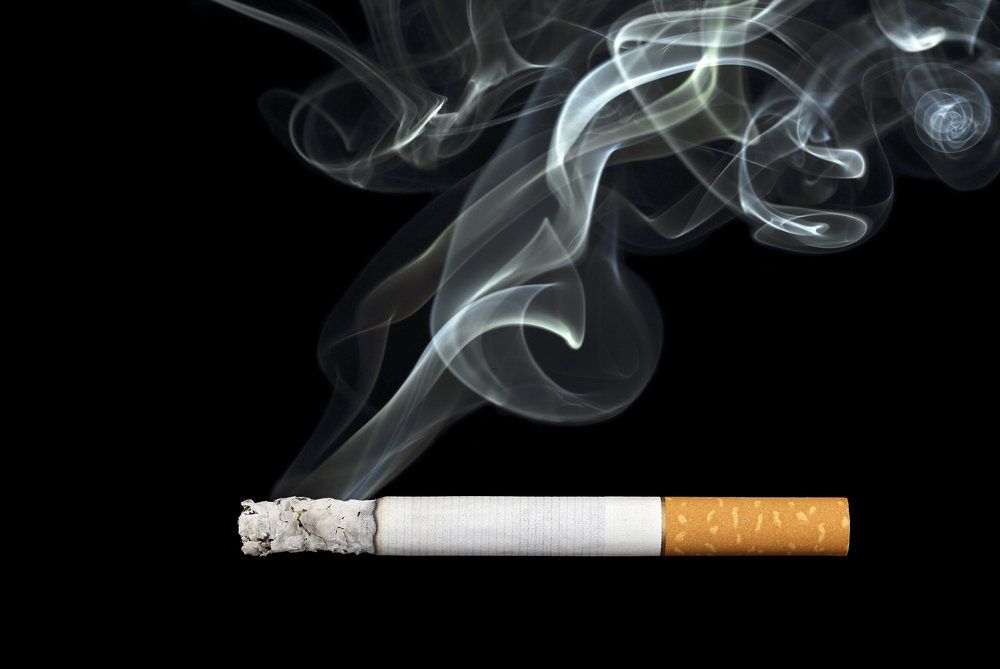The Harmful Link between Smoking and Dental Health
 You’re probably well aware that tobacco can be harmful to your body. Smoking can cause respiratory issues, cardiovascular disease, blood disorders, and more. This unhealthy habit can also be especially detrimental to your teeth and gums, since you inhale the carcinogenic material through your mouth. Despite these risks, over 42 million Americans still smoke, and the CDC reports that 20 percent of all deaths can be attributed to cigarette use. Our dentists provide a full suite of general dentistry treatments to maintain and enhance our patients’ overall wellbeing. Since harmful lifestyle behaviors can significantly impact the state of your mouth, we make it a point to educate patients about the connection between smoking and dental health at our Ridgewood practice. In the following blog post, we detail the oral health conditions associated with smoking and provide tips for improving your smile.
You’re probably well aware that tobacco can be harmful to your body. Smoking can cause respiratory issues, cardiovascular disease, blood disorders, and more. This unhealthy habit can also be especially detrimental to your teeth and gums, since you inhale the carcinogenic material through your mouth. Despite these risks, over 42 million Americans still smoke, and the CDC reports that 20 percent of all deaths can be attributed to cigarette use. Our dentists provide a full suite of general dentistry treatments to maintain and enhance our patients’ overall wellbeing. Since harmful lifestyle behaviors can significantly impact the state of your mouth, we make it a point to educate patients about the connection between smoking and dental health at our Ridgewood practice. In the following blog post, we detail the oral health conditions associated with smoking and provide tips for improving your smile.
Cosmetic Concerns
Smoking exposes your tooth and gum tissue to dozens of hazardous chemicals. These can darken or yellow your teeth by staining them and breaking down your enamel. Tobacco can also discolor your gum tissue, creating red, black, or white patches. If you suffer from tooth discoloration as a result of smoking, our dentists can provide Zoom!® chairside teeth whitening to brighten your smile. However, this procedure will not address aesthetic issues with your gum tissue, and your teeth will become stained again if you continue to smoke.
Bad Breath
Smoking can also cause halitosis, or foul-tasting and -smelling breath. Tiny particles from cigarettes can remain in your mouth, throat, and lungs, causing your breath to smell like smoke for many hours. In addition, smoking can cause xerostomia, or dry mouth, preventing adequate saliva flow. Without enough antibacterial spit to fight them off, bacteria may begin to congregate in your mouth. If you suffer from bad breath as a result of smoking, special mouthwashes, rinses, or mints may be able to temporarily reverse your halitosis, but the only long-term solution is to stop smoking.
Gum Disease
Smoking dries out your mouth, limits your body’s ability to fight infection, and disrupts the healthy growth of periodontal (gum) cells. For these reasons, smokers are at much higher risk for gum disease, in which the same bacteria that cause decay accumulate under the gum tissue, creating inflammation, bleeding, and pockets of infection. Severe gum disease may even attack your jawbone and destabilize surrounding teeth, leading to tooth loss. Our dentists can provide advanced periodontal treatments such as guided tissue regeneration to treat your gum disease. However, we strongly recommend that patients stop smoking before and after treatment, since continuing this habit can interfere with the efficacy of your procedure and increase your risks for further gum disease.
Decay
The same factors that cause smokers to develop gum disease more rapidly also increases the risk for cavities. If you smoke, your body may be less able to fight back against plaque and tartar formation, allowing detrimental bacteria to collect on your teeth. You can decrease your risks for decay by brushing and flossing your teeth regularly. If you suffer from caries, our dentists can remove the diseased material and fill your teeth to restore your smile.
Oral Cancer
Over 8,000 Americans die from oral cancer each year, and smokers are six times as likely to suffer from this life-threatening illness. The average cigarette includes more than 70 carcinogenic substances, so this should come as no surprise. At Ridgewood Dental Associates, we provide oral cancer screenings at all routine cleanings and exams. If you smoke, it is imperative that you come in for at least biannual visits so we can assess your tissue and catch oral cancer as early as possible, when it can be treated more easily.
Secondhand Smoke
Your hazardous habit doesn’t just impact you; coming in contact with secondhand smoke can make your friends, colleagues, and family members prone to all of the above oral health conditions. To save yourself and your loved ones from dental disease, you should strive to stop smoking as soon as possible.
Contact Ridgewood Dental Associates
To learn more about the oral health risks associated with smoking or find out what you can do to preserve your smile, contact our dental practice today to schedule a consultation.






